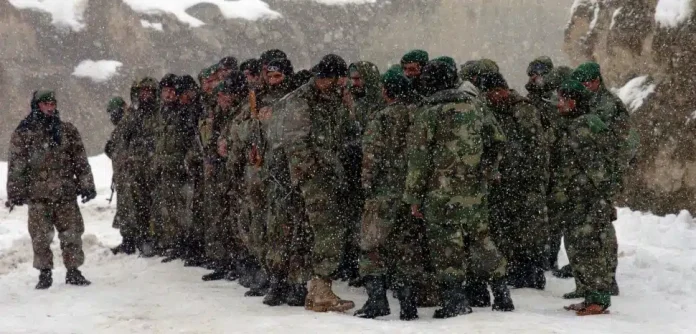Recent discussions of potential conflict between India and Pakistan have reached a new intensity following a terrorist attack in Indian-administered Kashmir that claimed the lives of 26 tourists. The attack, which took place in the picturesque town of Pahalgam on April 22, has sparked outrage within the Indian government.
India has blamed Pakistan for the attack, which resulted in the deaths of civilians. Pakistan, as with previous incidents, has denied any involvement.
Kashmir, a region with a Muslim-majority population, is claimed by both India and Pakistan. The two countries each control part of the area, which is divided by the Line of Control (LoC), a de facto border. The region has been a point of contention between the nuclear-armed neighbours for decades, and frequent terrorist attacks on the Indian-administered side are often blamed on Pakistan.
Following the recent attack, Indian Prime Minister Narendra Modi vowed to pursue the “terrorists and their backers… to the ends of the earth”. As tensions rise, experts on both sides are closely observing the situation, wondering whether military action is imminent.
Possible military response to the Kashmir terror attack
Many experts on both sides of the border believe that military retaliation is now highly probable. Raj Shukla, a retired Indian Army general, emphasised that the attack was particularly heinous for two reasons: it targeted a specific community (Hindus), which he argued threatens India’s secular fabric, and it specifically targeted tourists.
Reports from survivors indicated that the attackers singled out tourists by their religion, shooting only Hindus. However, India has yet to provide concrete evidence of Pakistan’s involvement in the attack.
Amber Shamsi, a well-known Pakistani journalist, suggested that India’s accusations are based on a historical pattern of behaviour but cautioned that this time, the allegations lack solid proof. On the other hand, Ian Hall, a professor of international relations, expressed doubts about Pakistan’s denials, noting that there is substantial evidence linking elements of Pakistan’s military and establishment with these groups.
Prime Minister Modi has indicated that the Indian armed forces have full operational freedom to determine the targets, timing, and mode of retaliation. “It is a crisis,” Lieutenant General Shukla remarked, adding that the situation could become both bloody and prolonged. “The time has come now to strike. This is a pivotal moment in our statecraft,” he said.
Ajai Shukla, a retired Indian colonel, noted that both nations are in a delicate position, and unless there is a way to de-escalate the situation, finding a solution may prove difficult.
Could the conflict escalate to nuclear war?
While military retaliation appears likely, experts agree that an all-out nuclear war is improbable. India follows a no-first-use policy regarding nuclear weapons, while Pakistan has declared it would use them if it faced an “existential threat”. Both countries possess comparable nuclear arsenals, with India holding 172 warheads and Pakistan 170.
Lieutenant General Shukla suggested that Pakistan’s leadership is intelligent enough to avoid escalating to nuclear conflict, despite keeping that option on the table. “Between terror and the nuclear threshold, there is plenty of room for conventional military operations,” he said. Similarly, Colonel Shukla believed cooler heads would prevail, pointing out that global powers, including China, the US, and Russia, would likely intervene to prevent any serious escalation.
Michael Kugelman, a South Asia analyst based in Washington, also agreed that full-scale war is unlikely, but not impossible. The presence of nuclear weapons on both sides, he said, serves as a deterrent to large-scale conflict. “The risks of escalation are contained,” he stated.
India’s government under pressure
Despite the risks, experts noted that Prime Minister Modi is under significant domestic pressure to respond decisively. “His supporters are calling for a tough response, so it will be tricky to calibrate the right level of action,” said Subir Sinha, a researcher at the University of London.
Shamsi, the Pakistani commentator, pointed to the 2019 airstrike on Balakot in Pakistan as a possible model for India’s response. While that attack was largely symbolic, India claimed to have killed a large number of terrorists and commanders linked to the Pakistan-based Jaish-e-Mohammad group. Pakistan, however, denied any casualties.
Professor Hall remarked that the Pahalgam attack was significant because it struck at the heart of Modi’s vision for Kashmir: the restoration of normalcy. “Modi has positioned himself as a strong leader who can solve these problems, but the attacks keep happening,” he said. “This increases the pressure on the Modi government to take decisive action.”
